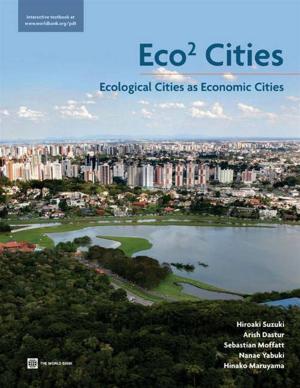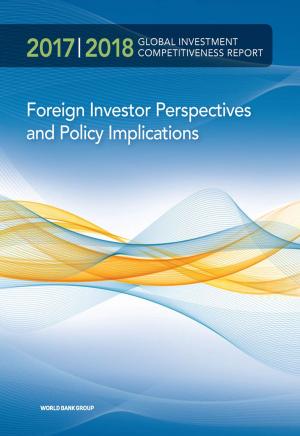Financial Services And Preferential Trade Agreements: Lessons From Latin America
Nonfiction, Social & Cultural Studies, Political Science, International, International Relations| Author: | Haddad Mona E.; Stephanou Constantinos | ISBN: | 9780821382738 |
| Publisher: | World Bank | Publication: | May 27, 2010 |
| Imprint: | Language: | English |
| Author: | Haddad Mona E.; Stephanou Constantinos |
| ISBN: | 9780821382738 |
| Publisher: | World Bank |
| Publication: | May 27, 2010 |
| Imprint: | |
| Language: | English |
This volume chronicles the recent experience of governments in the Latin American region that have successfully completed financial services negotiations in the context of regional trade agreements. It aims at providing policymakers and negotiators with a better understanding of the complexities involved in financial services negotiations and a deeper understanding of the substantive issues related to financial services liberalization within a regional context, the process negotiators have to go through, and likely effects of financial market opening within regional agreements. The book fills an important gap in the literature on trade in services by focusing attention on the dynamics of trade and investment liberalization in a sector of considerable technical complexity and regulatory intensity - financial services; among a sample of countries (Chile, Colombia, Costa Rica) from a "first mover" region in the financial services liberalization front - Latin America; and in the confines of one specific type of negotiating setting - preferential trade agreements. One of the unique features of this volume is the three in-depth country case studies, all written by trade experts who led the negotiations of their respective countries in financial services. The country studies offer useful analytical insights into the substantive content of the legal provisions governing financial market opening in the region, and how such provisions have evolved over time and across negotiating settings. They describe how each of the three governments organized the conduct of negotiations in the sector; the extent of preparatory work that governments undertook during negotiations, sometimes outsourced to experts in academia or consulting firms; and the negotiating road maps that were put in place to help negotiators. The case studies are complemented with other chapters dealing with the evolving architecture of trade and investment disciplines in financial services and how best to prepare for negotiations in the sector.
This volume chronicles the recent experience of governments in the Latin American region that have successfully completed financial services negotiations in the context of regional trade agreements. It aims at providing policymakers and negotiators with a better understanding of the complexities involved in financial services negotiations and a deeper understanding of the substantive issues related to financial services liberalization within a regional context, the process negotiators have to go through, and likely effects of financial market opening within regional agreements. The book fills an important gap in the literature on trade in services by focusing attention on the dynamics of trade and investment liberalization in a sector of considerable technical complexity and regulatory intensity - financial services; among a sample of countries (Chile, Colombia, Costa Rica) from a "first mover" region in the financial services liberalization front - Latin America; and in the confines of one specific type of negotiating setting - preferential trade agreements. One of the unique features of this volume is the three in-depth country case studies, all written by trade experts who led the negotiations of their respective countries in financial services. The country studies offer useful analytical insights into the substantive content of the legal provisions governing financial market opening in the region, and how such provisions have evolved over time and across negotiating settings. They describe how each of the three governments organized the conduct of negotiations in the sector; the extent of preparatory work that governments undertook during negotiations, sometimes outsourced to experts in academia or consulting firms; and the negotiating road maps that were put in place to help negotiators. The case studies are complemented with other chapters dealing with the evolving architecture of trade and investment disciplines in financial services and how best to prepare for negotiations in the sector.















